Evaluating the Infrastructure Program of the Science and Technology Ministry
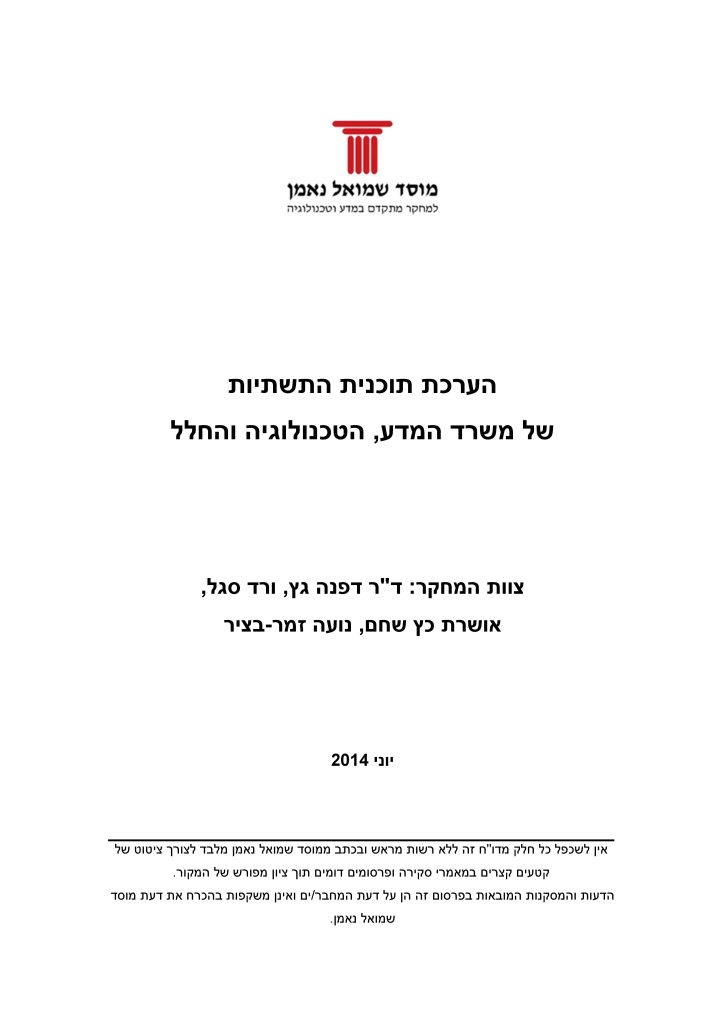
The Scientific Infrastructure Program of the Ministry of Science and Technology was launched in 1995 in an attempt to bridge the gap between basic and applied research. The program is targeted in stimulating the “maturity phase” of potential applied technologies. Moving basic research towards an applied research track may encourage more efficient utilization of the […]
Global challenges for the water industry in the Micro Electronics industry
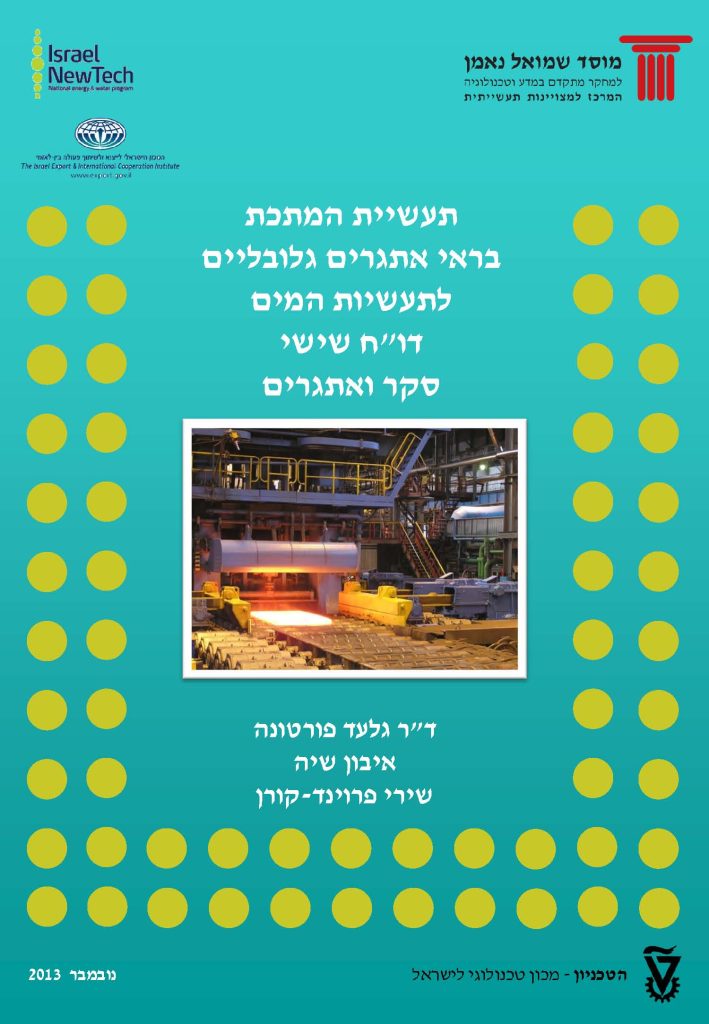
This report reviews the water challenges in the Metal industry with emphasis on iron & steel making and metal finishing. It reviews the role of water in the production as well as water treatment needed in regarding to water use, saving .o the environment/ recyclingving water, he water treatment need water, reuse, recycle and regulated […]
Water for nature and rivers restoration – Summary and recommendations of the 3rd Water Forum
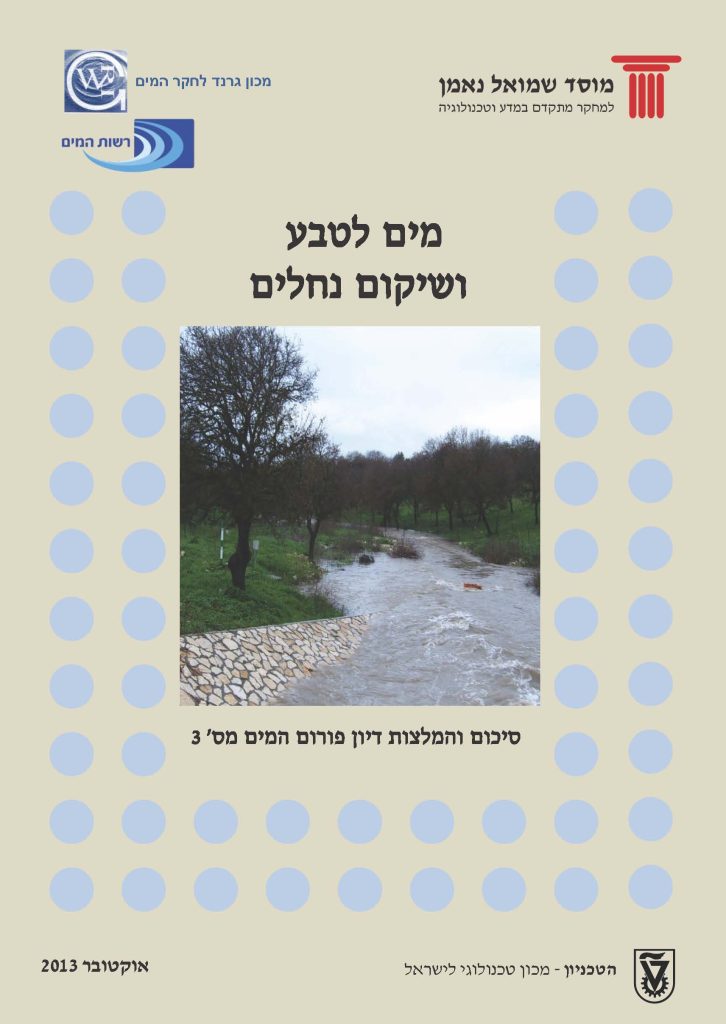
At the third meeting of the Water Forum, held on January 2013, initiated in collaboration with the Energy and Water Minister, Dr. Uzi Landau, the issue of “Water for Nature and the Restoration of Streams” was discussed. A full day was devoted to the meeting, with the participation of the best experts in dealing with […]
Mapping of National Research Infrastructures in Israel: updated mapping of Israel research infrastructures and international research infrastructures, which are used by Israeli researchers
The following is a summary of additional research conducted by the Samuel Neaman Institute following research conducted in 2010 “Mapping of Research Infrastructures in Israel” The purpose of the latter was to compile a database which would constitute the basis for a road map setting out the establishment of National Research Infrastructures in Israel. […]
Evaluation of the contribution and achievements of the KAMEA Program scientists in enhancing the scientific research and the industry in Israel
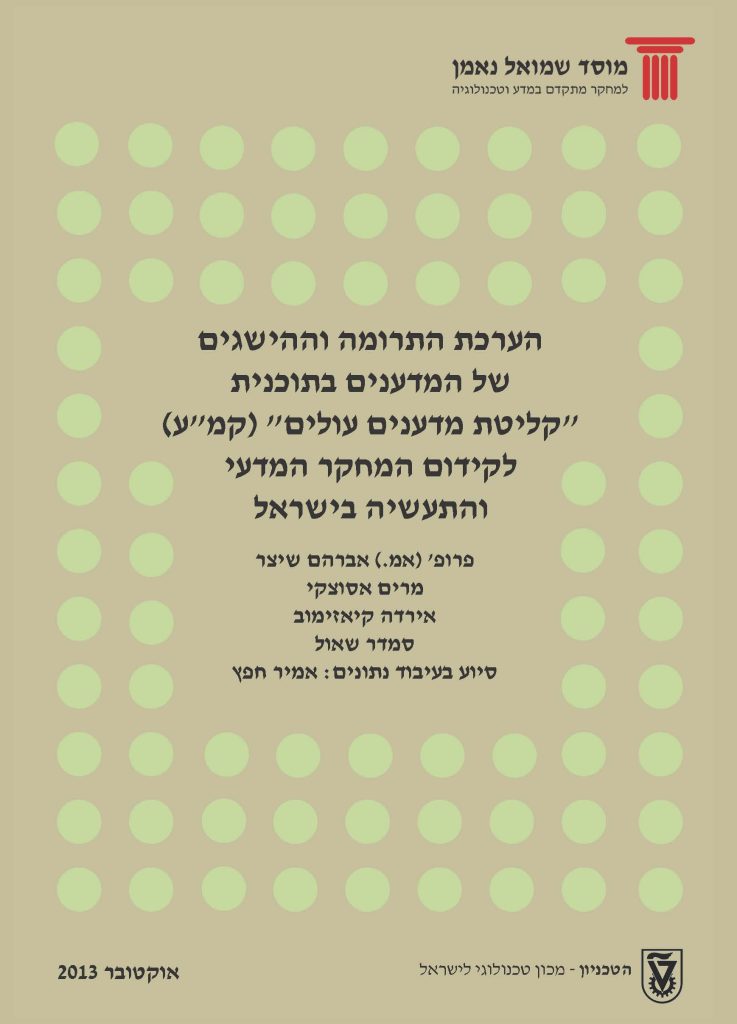
This study was conducted in cooperation between the Samuel Neaman Institute and the Ministry for Immigrant Absorption. The purpose of the study was to evaluate the contributions, achievements and costs of the program for absorption of immigrant scientists in research and higher learning institutions in Israel (KAMEA), from its initiation in 1998 until the end […]
Orthodox Employment – Information Booklet Second Edition
This information booklet was written on the basis of knowledge and experience accumulated at the Samuel Neaman Institute during the running of the “Ultra-Orthodox Integration Project”. The booklet is designed for managers and owners of companies and organizations, and human resource managers in these organizations – especially secular ones. It should provide them with the […]
Changes in productivity amongst Jewish women
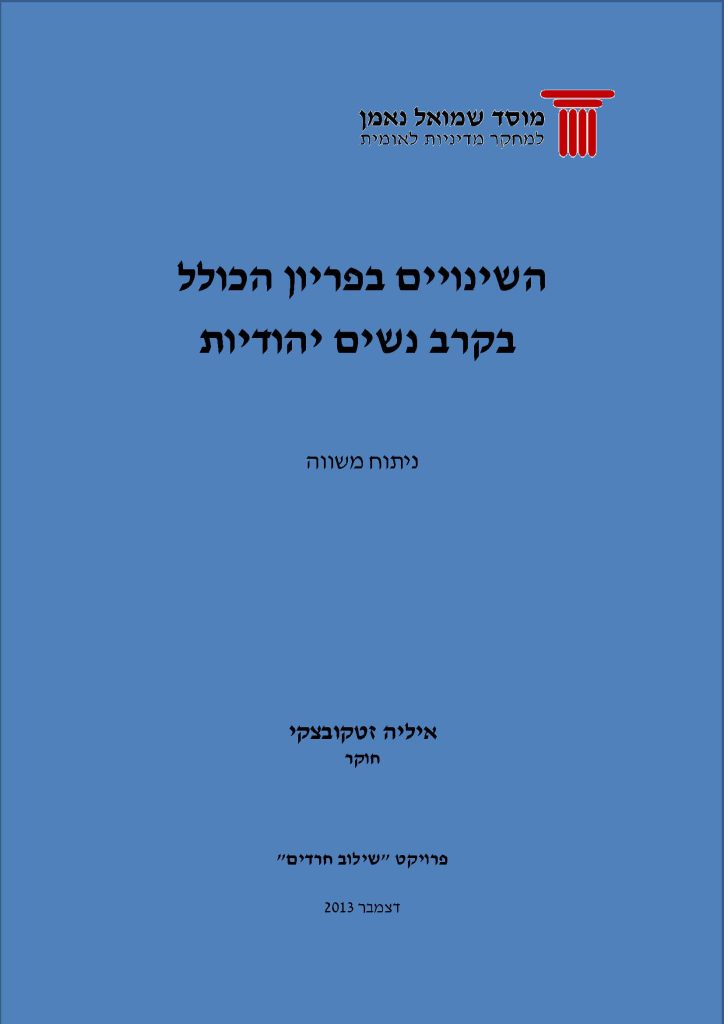
The following short report attempts to examine some of the data relating to the total fertility trends amongst Jewish Orthodox women , as they were presented in the research of several scholars . Moreover, the document contains a preliminary analysis of the reasons for these trends . The tests mentioned in the paper point to […]
MACHA’R IS ALREADY HERE
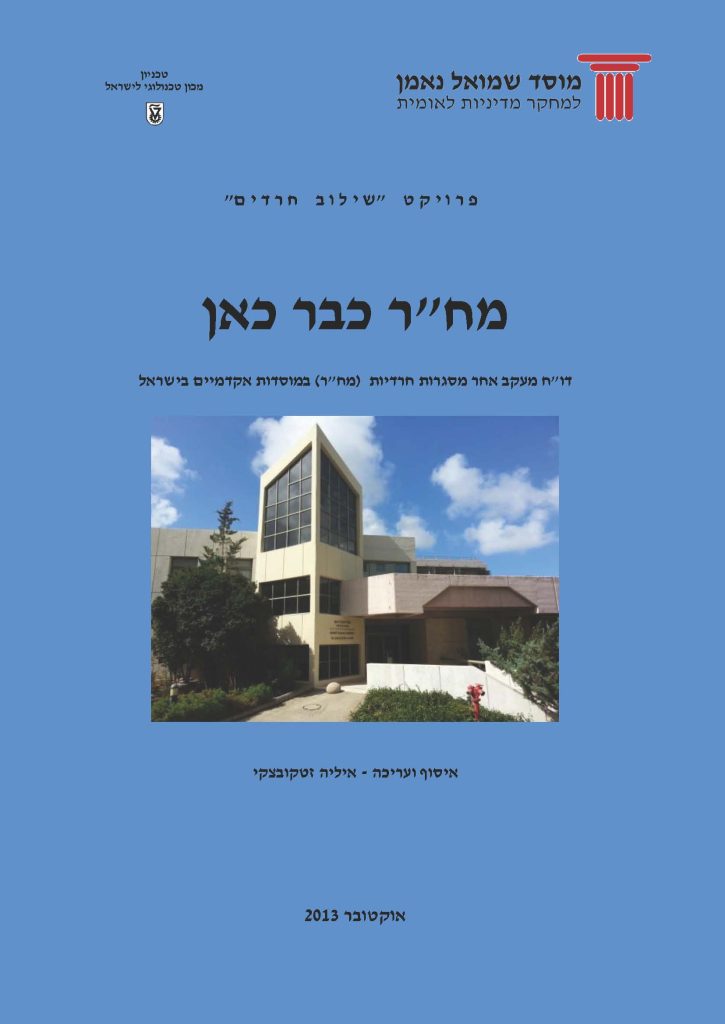
In November 2012 , the Planning and Budgeting Committee (PBC ) of the Council for Higher Education published a Call to all Israeli academic institutions encouraging the creation of specialized Haredi academic frameworks within existing institutions . This Call was the result of a process that began several years before and had gained momentum, after […]
Success Stories
This book features 78 success stories that depict Ultra-Orthodox individuals, men and women, in Israel, who have successfully integrated into the world of academic education , employment and the military. The stories were compiled by researchers in the Ultra-Orthodox Integration Project at the Samuel Neaman Institute, using contacts and sources of information at their disposal […]
Energy Forum 29: Smart Cities
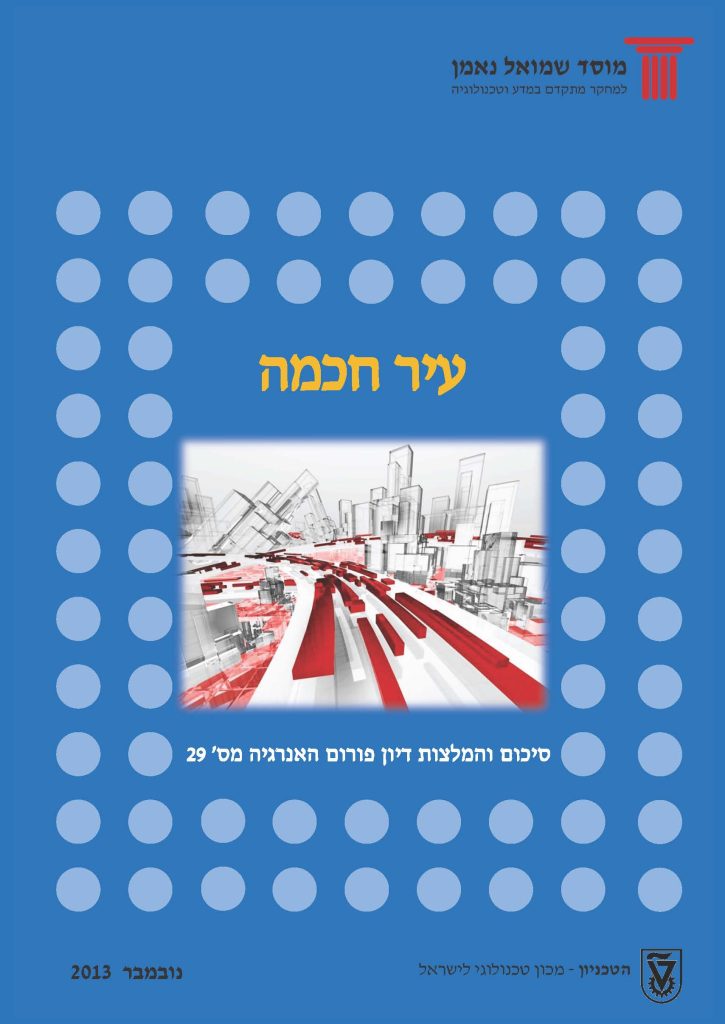
Most of the world’s population today lives in cities. In order to continuously serve and improve the increasing population’s life quality, there is a growing need to develop smart cities. A smart city strives to optimally and sustainably utilize available resources, while maintaining adequate balance between social, environmental and economic costs. There are many benefits […]
